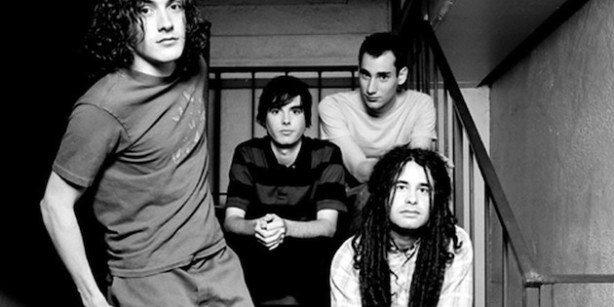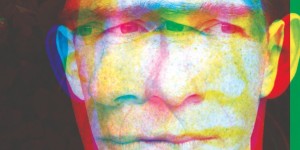 Music
Music
13 classic Canadian emo bands you might have forgotten about
by Mark Teo
September 18, 2013
In 2013, emo purists mostly argue semantics: Skramz, they might say, revives the term’s real post-hardcore spirit, leaning on genre pillars like Indian Summer. Screamo, they might argue, denotes metallic screamed fare pioneered by Orchid, Saetia, or early Grade. Spazzcore, meanwhile, was the sassy progeny of Blood Brothers. Lifetime isn’t emo—it’s melodic hardcore. Saves the Day, meanwhile, aren’t precisely emo; they’re more pop-punk. And… Well, we could go on.
The truth is, for much of emo’s existence, the term wasn’t hard code: Especially in its formative era, it was a catch-all term for punk rock, hardcore, post-hardcore, and indie rock that didn’t fit into neat genre conventions. Accordingly, many people will call these 13 Canadian bands something other than emo—but believe us, the term applied to them in the past. And it does today.
1. Moneen
It’s arguable that Moneen (sorry, .moneen.), Canada’s biggest emo abassador, was never forgotten—Kenny Bridges and co. released an album in 2009 on Dine Alone titled The World I Want to Leave Behind. (Former bassist Chris Slorach, meanwhile, appears on this month’s cover of AUX Magazine with his new band, METZ.) All picked chords and off-kilter syncopation, Moneen’s fiery live show and shockingly decent lyrics—because come on, most emo lyrics age terribly—have made them a Canadian music mainstay. For Moneen starters, begin with “The Passing of America.” (And not the Alexisonfire version.) Recently, members of Moneen (as well as Sights and Sounds, etc.) have announced an album on Black Box with new band Seas.
2. Grade
Burlington, ON’s Grade are a band credited with pioneering modern screamo. (Though technically, they rose alongside Orchid, Saetia, and others, while the style also evolved in far-flung places like Italy.) Nonetheless, their sound was uniquely jarring, as vocalist Kyle Bishop’s screams never seemed to fit Grade’s sprawling, melodic opuses. The band rode that contrast all the way to a record deal with Victory Records—a label who, at the time, were better known for chongo fare like Hatebreed and Blood for Blood—and the Chicago label would release Under the Radar, which is considered the band’s classic release. (Though diehards swear by Separate the Magnets.) They’d spawn countless imitators in Southern Ontario and beyond, and though they’re technically broken up, the band’s still known to reunite sporadically.
3. Chore
Chore are arguably the oldest band on this list, and represent the short period—which occurred in the late ’90s—where grunge, alt-rock, and indie rock blended with post-hardcore to form some of emo’s most influential strains. In the U.S., bands like Braid, Mineral, Texas is the Reason, and Elliott headed the soft-focus emo brigade, but north of the border, we had Chore, a Hamilton-based act whose crunchy guitars betrayed their gentle vocals. I’ve since lost my Chore records, but hopefully, Sonic Unyon will share The Coastline Fire on Rdio. Please?
4. Silverstein
Named for famed children’s author Shel Silverstein—is there a more fey reference for an emo band?—Burlington, ON’s Silverstein began their career as an emo band. While they’ve progressed into different sounds since then, their sing-scream dynamics, and their hometown, had them signing with the then-hot Victory Records, who were scouring the world for the next Grade. When Broken is Easily Fixed, with its iconic robot and heavily autotuned vocals, remains their beloved screamo album, though they’ve dabbled with speedy punk rock (on Discovering the Waterfront) and big-band alt-rock.
5. Choke
Choke’s current fans will bristle at us calling them emo. After all, after a recent round of reunion shows that led to packed dates in the Canadian west, their sound has attracted everyone from the beard-rock set to technical pop-punk fans. No surprise, too: They had duelling vocals, shredding guitars, and bouncing breakdowns, enough to satiate the most scatterbrained Steve’s Music employee. But this Edmonton act’s inclusion on this list speaks to one factor: That in the mid ’00s, emo was a catch-all term that included progressive punk, post-hardcore, sensitive indie rock, and countless other genres. So, no, Choke weren’t emo, but yes, they were absolutely emo—right down to their (ahem, Moneen’s) label, Smallman, which cut 2005’s classic Slow Fade or How I Learned How to Question Infinity.
6. Boys Night Out
Yet another product of Southern Ontario’s once-thriving emo scene (whose early days are still documented on former 905-scene message board OntarioMusic), Boys Night Out hit their stride in the mid-’00s. Though their early offerings, like the Make Yourself Sick EP, dabbled in metallic territories, the band’s most memorable release was 2003’s Make Yourself Sick, which paired hardcore breakdowns with octave-chord slick pop-punk. Its legendary opening track, “I Got Punched in the Face For Sticking My Face in Someone Else’s Business,” is one of the band’s classics, and, thanks to its octave chord-driven verse, even won over hordes of Lifetime fans.
7. Fifth Hour Hero
Quebec City’s Fifth Hour Hero represented a different type of emo band: They relied more closely on gruff post-hardcore, and perfected their chops to the point where they were snatched up by No Idea Records. (Let us not forget that while the label is now associated primarily with orgcore, Hot Water Music, Small Brown Bike, Jawbreaker, and I Hate Myself were all, at a point, considered emo.) Through three albums—including the dramatically titled Not Revenge… Just a Vicious Crush—they established a scrappy, D.I.Y. emo sound, built on bubbling basslines, boy-girl vocals and clean-distorted dynamics, making them Canada’s answer to Hot Water Music. [Note: We erroneously listed Fifth Hour Hero as a Montreal band, no doubt because of the ubiquity of HE | RO hoodies in the city.]
8. Shotmaker
Shotmaker were especially popular with the screamo purists—the type who once populated Ottawa’s independent music scene, and who still have strong presence in Alberta. (Thanks to the efforts of labels like Bart Records and fests like Edmonton and Calgary’s Ghost Throats.) Not that this is City of Caterpillar worship: The eastern Ontario band predated most modern skramz, and actually operated in its formative period: between 1993 and 1996. Accordingly, their is a mix of hardcore, post-hardcore, and emo, and their dynamics are unique, twisting through catatonic riffage, time-signature changes, and impassioned scream-wailing. Their collected discography is a perfect starting point—it was cut in 2000 by Troubleman Unlimited—to their shapeshifting, open-ended aesthetic, which cemented Shotmaker as one of Canada’s most influential.
9. The Fullblast
The Fullblast always claimed that Lifetime—another band dubiously associated with emo—were an influence, but their take on melodic hardcore was substantially different than Ari Katz’s. (Though the song title “Spoons, Gats, Prison Tats” is a stroke of Katz-ian genius.) Boasting second-wave emo’s nasal vocals and the technical proficiency of late-’90s skate punk, the Fullblast were all about energy, speed, sugary hooks, and surgical precision. They’re best remembered for their Dine Alone-released 2005 album, Short Controlled Bursts, though their back catalogue is very much worth plundering. (And if you have copies of their early material, or other period-specific Ontario emo—like Brokenstar—please get in touch.) The band played a string of sold-out reunion shows in Ontario last year with Belvedere, Grade, and Moneen—an Ontariomusic wet dream if there was one.
10. A Newfound Interest in Connecticut
Laugh all you want at their Get Up Kids-inspired moniker—A Newfound Interest in Connecticut were a Toronto band whose music still holds up at current. That’s largely because the band—along with their evident pop-punk influence—toyed with post-rock, often leading songs through soaring, picked crescendos before even delivering a verse. ANIIC, whose lasting monument is 2005’s Tell Me About the Long Dark Path Home, were also a training ground for some of Toronto’s art-rock pillars: Members went on to play in noise act DD/MM/YYY and its follow-up, Absolutely Free.
11. Sleeper Set Sail
While Grade’s brand of screamy pop was heavily influential in Burlington, Alexisonfire’s athletic, near mathy guitars were prevalent in their hometown of St. Catherines. Sleeper Set Sail were one such band: Like Dallas, George and co., they established a sound based on squeaky clean athletic guitars, precise drumming, sparkling clean vocals, and powerful chantalongs. Start with their LP, Eyes Like Forest Fires.
12. The Reason
The best part about The Reason? When dude hits that three note guitar solo in the bridge, before that giant chorus hits: “I’VE FOUND THE REASON FOR ME…” Oh wait, we’re not talking about Hoobastank? Oh, we’re talking about The Reason from Hamilton, ON! Yeah, Ravenna was a decent scream-sing emo LP, and the video for “150” is perfect: It’s a bowling showoff between some of Canada’s most prominent emo bands.
13. Vermicious Knid
Brantford, ON’s Vermicious Knid—who, like Silverstein, took their name from the children’s lit world, and in VK’s case, it was a nod to Roald Dahl—were one of Canada’s most beloved emo bands, and that’s because when they sparingly screamed, as they did on their debut EP, it felt like they meant it. They were at the top of their game when frenetic guitars collided with Ryan Stanley’s smooth vocals, mathy guitars, and diverse instrumentation—don’t be surprised to hear organs accompanying their singalongs. Of all the releases on this list, their sprightly energetic 2002 LP, Smalltown Devotion/Hometown Compulsion, holds up remarkably well. Stanley continues his musical career with his duo Cursed Arrows.
Tags: Music, Cancon, Lists, News, a newfound interest in connecticut, AUX Magazine, boys night out, canrock, choke, moneen, shotmaker, Silverstein, The Fullblast





